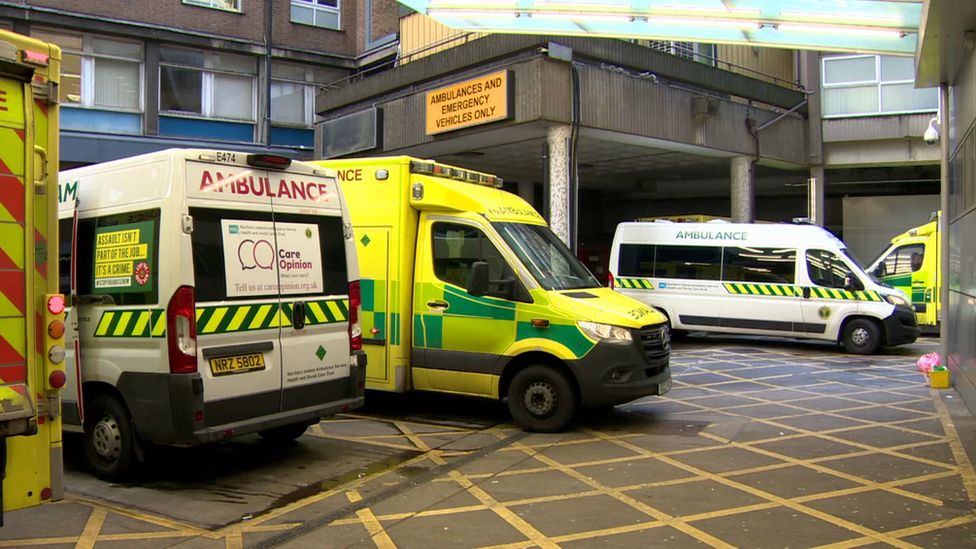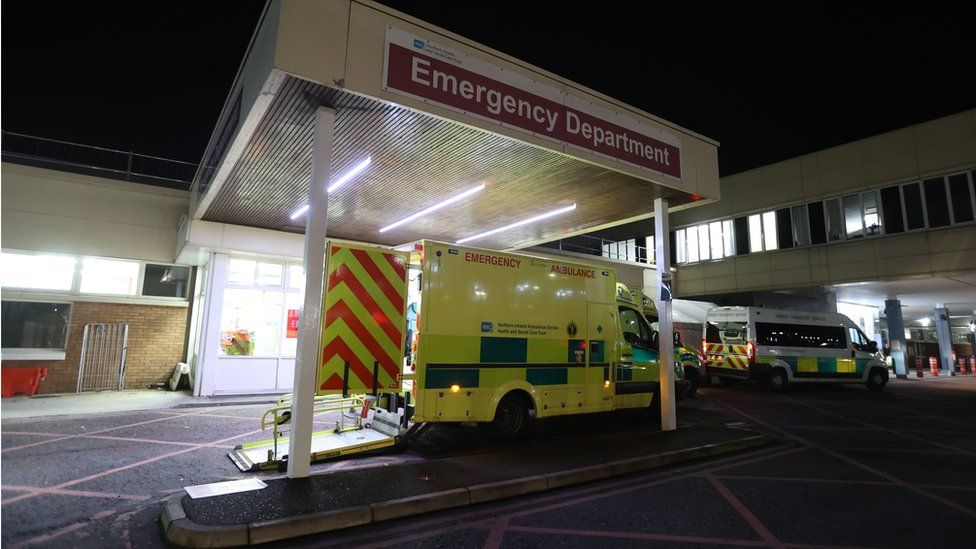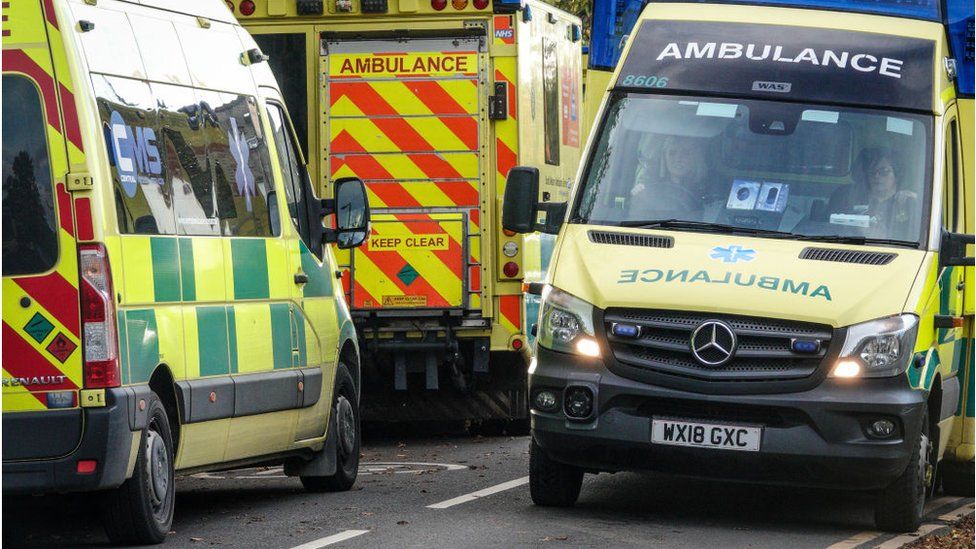
Emergency care pressures in Northern Ireland will cause more unnecessary deaths in the future, according to a senior doctor.
Dr Paul Kerr said there was currently “a dreadful crowding situation” at emergency departments (EDs).
He told The Irish News on Tuesday that the health service had experienced its worst winter on record.
The Department of Health said at midday on Tuesday almost 400 people were waiting to be admitted to hospital.
Dr Kerr added that he expects the situation to get worse before spring.
“We have a dreadful crowding situation and we have perhaps 450 patients lying on trolleys at this moment in time, queuing literally to get into hospital for emergency treatment,” he told BBC News NI.
“So you can expect that filters back into the ambulance system and causes delays in the response time and dreadful delays in the offload time.
“That’s scandalous and shocking; in fact and is bound to lead to increased mortality.”
Last week, Dr Paul Baylis, a consultant in emergency medicine at Altnagelvin Hospital in Londonderry, said the situation at Northern Ireland’s emergency departments was getting steadily worse.
Dr Kerr is vice-president of the Royal College of Emergency Medicine in Northern Ireland and is an emergency consultant based at the Royal Victoria Hospital in Belfast.
On Tuesday at 10:00 GMT, it was reported that the average waiting time at the Royal Victoria Hospital was just over five and a half hours (332 minutes).
‘Moral injury’
Dr Kerr highlighted the impact that pressures were having on medical staff and said that there needed to be “more beds in the system”.
He said the number of people lying in emergency departments was “progressively rising week on week”.

“At the moment the workforce is under great pressure,” he explained.
“There are staff leaving because of this very problem and they are being brutalised by this system suffering what we would call moral injury.
“This is unfortunately a real phenomena where you are coming in in the morning and you witness a junior nurse or doctor crying, perhaps, because of the events the night before where they have had to suffer these conditions in an overly-busy department with very few staff and you can imagine the situation,” Dr Kerr said.
In a statement, the Department of Health said that “as in other jurisdictions, hospitals across Northern Ireland remain under severe strain, resulting in growing numbers of patients experiencing prolonged waits in emergency departments”.
‘Mitigation measures’
“Unfortunately the situation in EDs (emergency departments) is reflective of the current pressures facing the entire health and social care system, as demand for services outweighs capacity.
“Mitigation measures were put in place ahead of the winter period.
“These include the winter plans highlighted by the then-Health Minister [Robin] Swann as well as measures announced jointly by trusts pre-Christmas.”
It said that for the longer term, the department had “been clear on the need for sustained action to build greater capacity – including sustained, significant investment and reconfiguration of services”.
“It remains vital that services are used responsibly and that hospital discharge processes are followed when people are deemed well enough to leave,” the statement added.
“Flu and Covid are both circulating in Northern Ireland along with other respiratory viruses.
“This is contributing to the pressures currently being seen in our hospitals.”
Hospitals in the UK are experiencing soaring demand, which experts believe is, in part, driven by winter illnesses like flu and Covid.
Some 13% of hospital beds in England are filled with people with Covid or flu, NHS England figures showed.
Senior doctors have described the NHS as on a knife edge, with some EDs in a “complete state of crisis”.
A number of health trade unions have taken strike action also in protest about pay and staffing levels.
In the Republic of Ireland, the Health Service Executive (HSE) has urged people seeking medical care to consider all options before attending a hospital emergency department in the wake of what it said will be “one of the busiest ever periods experienced by the health service”.
HSE Chief Operations Officer Damien McCallion told Irish broadcaster RTÉ that emergency departments are becoming extremely busy due to the “unprecedented combination of very high levels of flu, Covid-19 and other respiratory illnesses in the community”.
-
Government urged to take action over NHS pressures
-
8 hours ago

-
-
Hospital pressures ‘worse than Groundhog Day’
-
30 December 2022

-
-
Winter set to be worst for A&E, health leaders warn
-
31 December 2022

-
